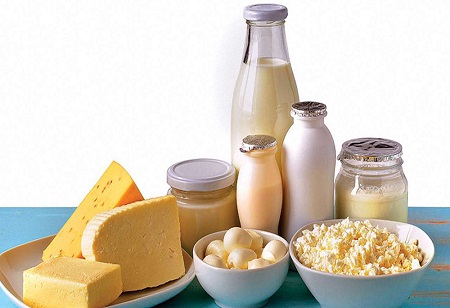Dairy Industry is one of the biggest agri-businesses in India and a significant contributor to Indian economy. It is considered as the largest single agricultural commodity with approximately 4 percent share in economy. India has been the largest producer of milk globally with 188 million MT production in 2019-20. The
Dairy market in India reached a value of INR 11,357 Billion in 2020 and is expected to grow at a CAGR of 15.4 percent during 2021-2026.
“Government intervention can be highly effective when planned with a long term, full system approach and that’s why dairy is a priority sector of the government with multiple financial support under dedicated fund”, says AtulChaturvedi, Secretary, Department of Animal Husbandry & Dairying. Through convergence of various schemes of the Department of Animal Husbandry & Dairying, Ministry of Food Processing Industries is being facilitated in the dairy sector to further incentivise private investments.
Entrance of Aggregators
Mostly it is seen that private dairy contractors are actually aggregators who are working with dairy industry since many years. However, the business of technology aggregators is redefining in today’s context. They are actually putting existing infrastructure in more structured and approachable format for more efficient use which in turn is creating win-win model for both consumers and producers.
Also, there is an urgent technological need to consolidate considerable infrastructure, which dairy industry has created over the years. At present, the individual assets that are created in procurement, production as well as supply chain is not fully utilized during all seasons of year and ultimately the cost of which is charged to consumers.
Niche Dairy Products are Witnessing Growth
For many years, the dairy industry has been focused only on cow and buffalo milk and milk based products. In the last one decade, rising internet penetration and increasing consumer awareness have upended this long standing norm. Today, consumers are increasingly inclined towards better, healthier alternatives such as camel milk or goat milk. Niche dairy products such as flavoured camel milk powder, camel milk based skincare products or goat milk ghee is attracting the attention of consumers.
Also, with the increasing disposable incomes and a renewed focus on healthy living, the spending habits of consumers are changing. Consumers are willing to spend more on a product that promises undeniable health benefits. Thus, the demand for premium products such as camel milk is increasing.
Changing Consumer Sentiments
There are many hyper-local delivery companies that are identifying the changing consumer demands and offering tailored, tech backed services to them. These companies are offering pure and premium quality milk or milk products that can be ordered online in a matter of seconds. There are added options of pre-payment and long term subscription which further adds to the value preposition being created by these companies. After the introduction of these services, consumers can order online at night and fresh milk will be delivered to their homes as early as 6 am.
Expansion of Products by Dairy Platforms
The tech backed milk and milk product delivery platforms are expanding their boundaries rapidly. All the leading players of dairy industry are look at branching out and offering a holistic dairy shopping experience through one consolidated app. Companies know that consumer acquisition costs are quite high in this segment, so they will largely benefit from strengthening their product portfolio and improving customer stickiness.
Challenges in the Way
Supply Chain Complexity
In the last few years, Dairy Industry has faced many challenges on the national level. The fundamental challenge in Dairy Industry is maintaining quality and quantity within a diversified supply base. As a perishable, dairy requires more complex supply chain operations and logistics to ensure freshness and safety.
Indian dairy market with the greatest growth potential is also among the least developed in infrastructure and consumer awareness. Supply chain has become increasingly complex in cities with multiple retail outlets. In metro cities, new value added segments and alternative products have taken off with surprising speed, intensifying competitive pressures and the need to innovate constantly.
Shortage of Funds
Different product segments yield very different levels of margins in dairy industry. Several challenges still exist in the hyper-local milk delivery segment. While the market size is considerably vast, consumers are quite fragmented. Startups need to be funded as gap in investmentsstill exists. Increasing competition is another challenge for these companies. However, defragmenting the market, improving the supply chain and doing further innovation can help startups addressing these challenges in an effective and efficient manner.
Expectations from Future
Carving a niche and offering diverse products will allow dairy industry to increase margins and move towards profitability. Industry experts believe that it is truly an exciting time to be operating in India’s fastest growing dairy segment. In the coming future, the market is set to expand on the back of the aforementioned trends. As a result, it can be expected that consumers will benefit greatly with easier access to high quality dairy products.
